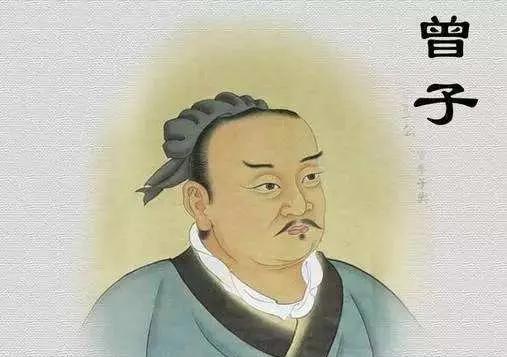"My Three Provinces and My Body: Seeking For Others and Not Being Faithful? Friends and not convinced? Can't get used to it? ”

This sentence is a famous quote of Zengzi, also known as Zengsan, a proud disciple of Confucius, famous for filial piety, and "University" is written by Zengsan. Before his death, Confucius entrusted his young grandson Zi Si to Zeng Shan, when Zi Si's father Kong Li was dead, Zeng Si did not bear the heavy trust, and trained Zi Si to become a Confucian master, Zi Si composed "Zhongyong", Zi Si's re-disciple was Mencius, which shows the status and role of Zeng San in the Confucian tradition.
Zeng Zi's words translated into the vernacular are, "I reflect on myself many times a day, is it loyal to my duties to do things for others?" Is it honest to associate with friends? Did the knowledge that my teacher taught me put into practice? ”
As mentioned in the previous chapters, "benevolence" is the highest state of Confucianism, and the goal is to eliminate the separation of human beings and all things, so as to achieve the unity of heaven and man, the unity of all things, and the endless life. Confucianism is the study of practice, and to be implemented in the daily relationship between people, the first thing is to eliminate the distinction between people and themselves. Vertical relationship, to fulfill the tasks assigned by others, embodied in loyalty to duty, so the trust generated will narrow the distance between each other, to achieve the unity of the upper and lower; horizontal relationship, to live up to the trust of others, abide by integrity, the same because of trust and close the distance between each other, to achieve left and right. The knowledge taught by the teacher is between the mouth and the ear, between the words and lines, only by entering the mind and practicing, can the distance between knowledge and action be narrowed, and the internal and external consistency be achieved.
Consistency inside and outside is the unity of knowledge and action, and the consistency of appearance and inside is the "sincerity" of a person. The left and right, the upper and lower are the manifestation and application of sincerity in social relations, that is, a person's "benevolence". To achieve "sincerity", there is no entanglement in the heart, open and accessible; to achieve "benevolence", there is no contradiction with the outside, harmony and smoothness. As an important figure in the Confucian tradition, Zeng Zi pointed out the starting point of Confucian practice in one sentence, and deserved the title of Confucian "Zongsheng".